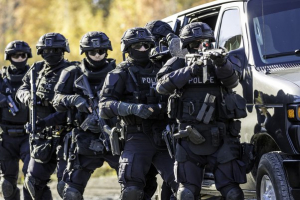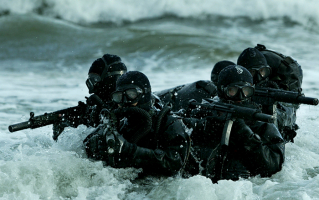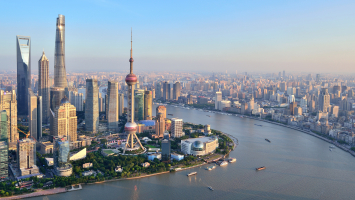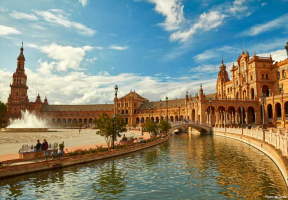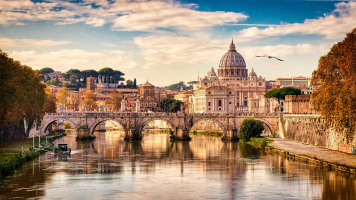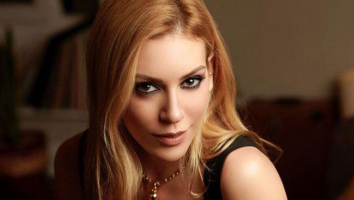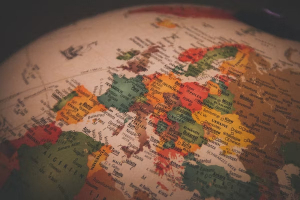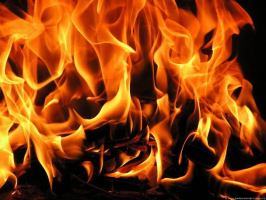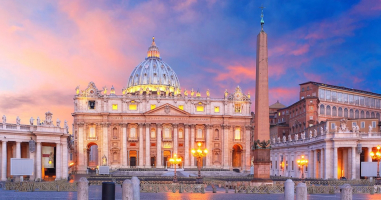Top 10 Countries Without Armed Forces
Without a military, is security possible? This question seems contradictory to most people, however there are nations that uphold their geographical ... read more...sovereignty without having any armed troops. Even if it may seem impossible in the modern world, there are still certain countries that can survive without an army and guarantee their citizens a happy life. The nations without armed forces at the moment are listed below.
-
In the Pyrenees, between France and Spain, sits a tiny, autonomous principality called Andorra. In addition to being known for its duty-free shopping and ski resorts, it is also known for being a tax haven. Capital In Andorra la Vella, Meritxell Avenue is home to several shopping centers, jewelry boutiques, and other businesses. The historic neighborhood of Barri Antic is home to the Romanesque Santa Coloma Church with its round bell tower. Although Andorra lacks a real army, it has protection agreements in place with several European nations, notably France. Its little volunteer army merely acts as a show of might. A paramilitary group that works with the national police is called the GIPA.
The little nation of Andorra was brave enough to declare war on Germany in 1914 and enter the so-called Great War despite never having a properly organized military. With an army of only 10 soldiers, the nation did not accomplish much and was not regarded seriously. Andorra was not invited to the discussions for the Versailles Peace Treaty despite having formally chosen a side. The Andorran National Police took the place of the men's corps often referred to as an army in 1931. About 240 men make up this force, which was formed to protect the peace and has been trained to free hostages. If you're a male who has a gun, you must join the police force.
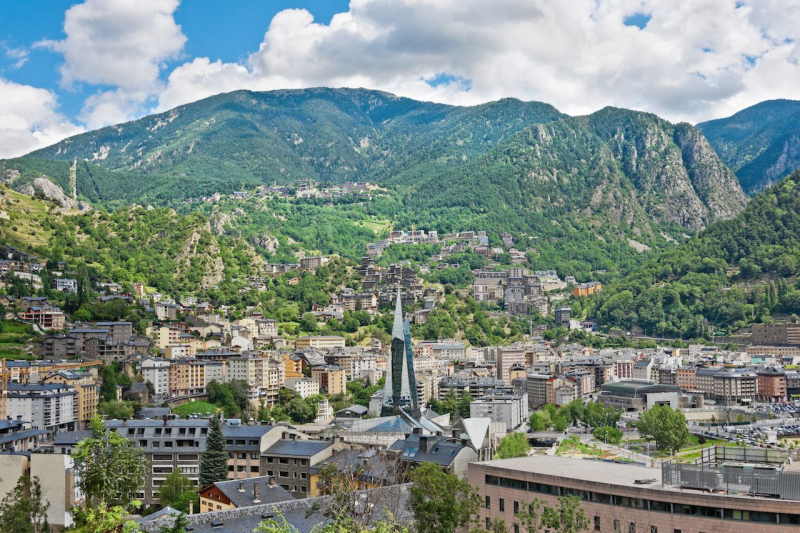
Matador Network 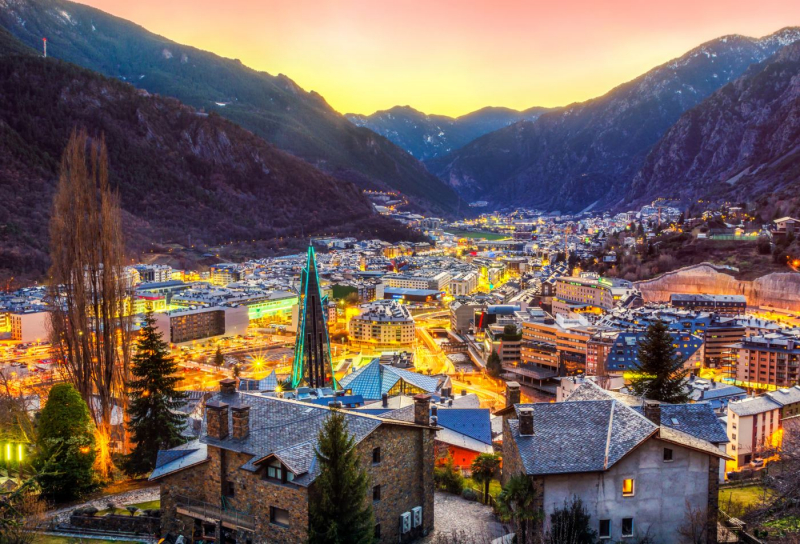
grandberrywoundescous.blogspot.com -
At the southernmost point of the Grenadines island group, Grenada is a Caribbean island nation in the West Indies. Grenada is made up of the main island of Grenada, two smaller islands called Carriacou and Petite Martinique, and a number of other islands that are a part of the Grenadines and are located to the north of the main island. There are several nutmeg farms on the main island's hilly interior, known as "Spice Isle". Additionally, it is where the nation's capital, St. George's, is located. Fort George, built in the early eighteenth century, and colorful homes overlook Carenage Harbour in St. George's. To the south lies Grand Anse Beach, which has hotels and bars. It hasn't fielded a ground force since 1983 because of the accompanying American-led invasion. The Royal Grenada Police Force maintains a paramilitary special service unit for internal security objectives. The Regional Security System's responsibility is defense.
No particular nation has made it its mission to defend Grenada militarily. Due to the Regional Security System, the nation can seek some form of military assistance from Antigua and Barbuda, Barbados, Dominica, Saint Kitts and Nevis, Saint Lucia, and Saint Vincent and the Grenadines; however, the majority of these nations do not have a robust enough defense apparatus to be of significant help. It would seem inevitable that the United States would come to their aid.
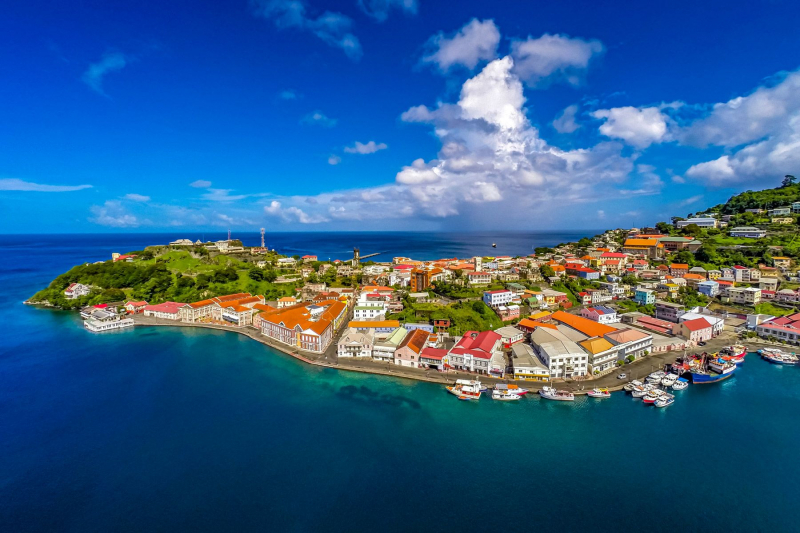
Sandals Resorts 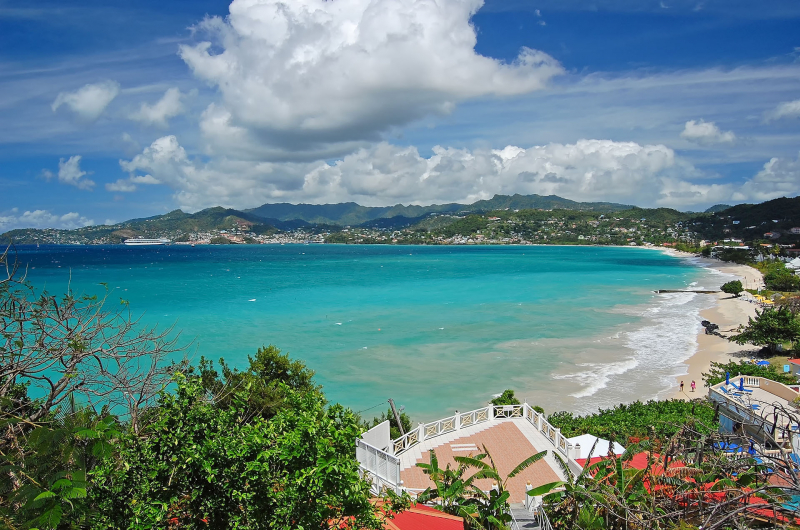
Virtuoso -
A 25-kilometer-long, German-speaking principality called Liechtenstein is located between Austria and Switzerland. The Prince of Liechtenstein is the head of this semi-constitutional monarchy. It is renowned for its medieval castles, mountain landscapes, and path-connected settlements. The capital of Liechtenstein and its cultural and financial center, Vaduz, is home to the Kunstmuseum Liechtenstein, which has galleries of modern and contemporary art. When adjusted for purchasing power parity, Liechtenstein's gross domestic product per person is among the greatest in the entire world. In Vaduz, the nation's banking industry is strong. The Postmuseum has a display of Liechtenstein postal stamps. The army was disbanded in 1868 because it was seen to be too costly. However, there has never been a time when military service was not permitted. On the other hand, the Principality of Liechtenstein possesses a functioning judicial system as well as a Special Weapons and Tactics unit.
In the case of a war or other assault, no specific nation would be required to protect Liechtenstein. According to rumors, the nation is permitted to mobilize an army in the event of a conflict, although this force would likely be ineffective and assistance from Switzerland may be forthcoming. Although neither nation has provided evidence to support or refute this assertion, there have been rumors that Switzerland is in charge of Liechtenstein's defense.
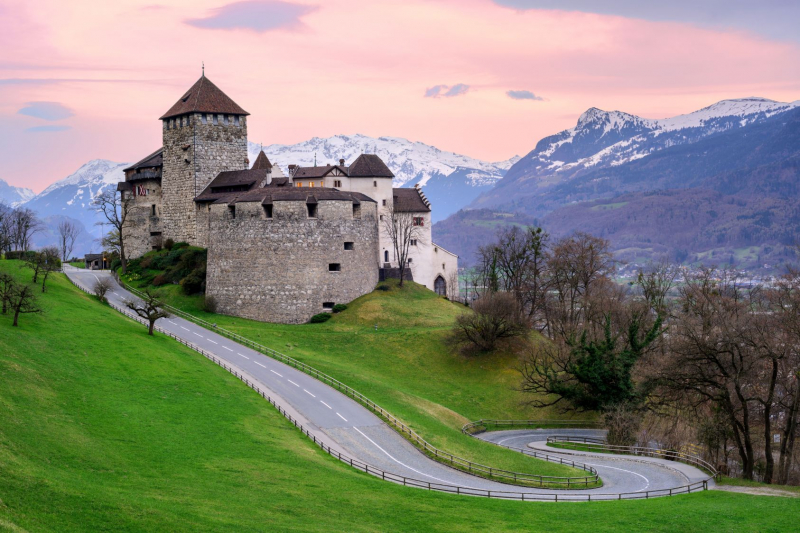
expat.com 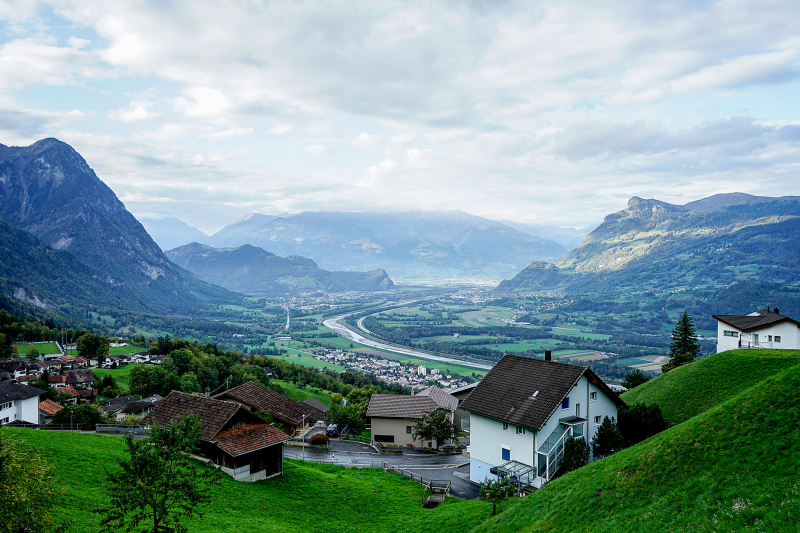
tourist-destinations.com -
East of Papua New Guinea and northwest of Vanuatu in Oceania, the Solomon Islands is an island nation made up of six major islands and more than 900 smaller ones. It has a population of about 700,000 people and a land area of 28,400 square kilometers (11,000 sq mi). On Guadalcanal, the largest island, is Honiara, the nation's capital. The Solomon Islands, a nation made up of hundreds of islands in the South Pacific, are home to several sites from World War II. On Guadalcanal, a province and one of the main islands in the archipelago, there is a memorial to fallen American soldiers.
The nation's capital, Honiara, is situated on the island of Guadalcanal, and its bustling Central Market displays goods from the islands as well as locally made crafts. kept a paramilitary force in place until Australia, New Zealand, and other Pacific nations intervened to reestablish law and order after a serious ethnic conflict. Although there is a significant police force and a Maritime Surveillance Unit for internal security, there hasn't been any military presence since then. The Solomon Islands don't have a designated protector, but they did pay Australia for some defense supplies. Australia would probably be one of the first nations to offer a defense if a war were ever declared against the islands.
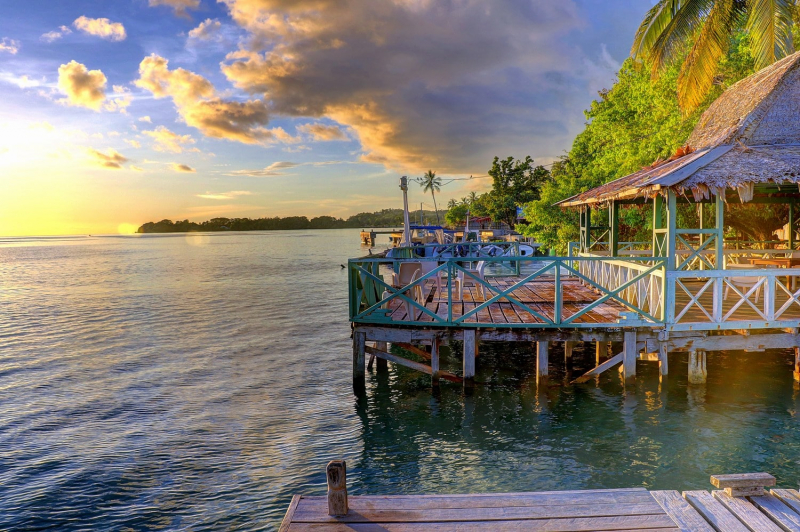
deeperblue.com 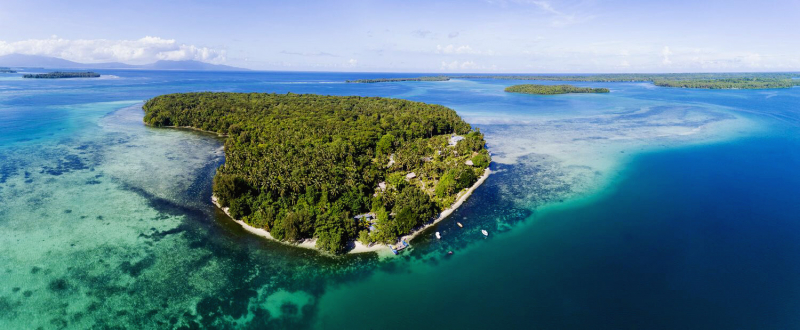
projectcargo-weekly.com -
Previously known as Pleasant Island, Nauru is an island nation and microstate in Oceania in the Central Pacific. Its official name is the Republic of Nauru. Nauru is the smallest republic and island country in the world, measuring about 21 km2 (8.1 sq mi) in size, making it the third-smallest country in the world after Vatican City and Monaco. With an area of only 8.1 square miles, Nauru is the smallest island nation in the world and is undoubtedly distinctive in many other respects. However, like many other countries on the list, Nauru lacks a permanent standing army or other form of armed force.
The nation doesn't even have a capital, probably because of its size. The nation does have a Nauru Police Force, despite its little size, which is used to make sure that the nation can maintain order. The nation, which is situated in the Micronesian archipelago of hundreds of tiny islands, is primarily dependent on its easily available phosphate. Today, the nation maintains strong ties with neighboring Micronesia islands as well as adjacent Australia. According to a rumored unofficial agreement between Nauru and Australia, Australia would provide for the country's basic military requirements. In fact, when Germany attacked Nauru in December 1940, the Australian Navy was requested to provide the necessary defense.
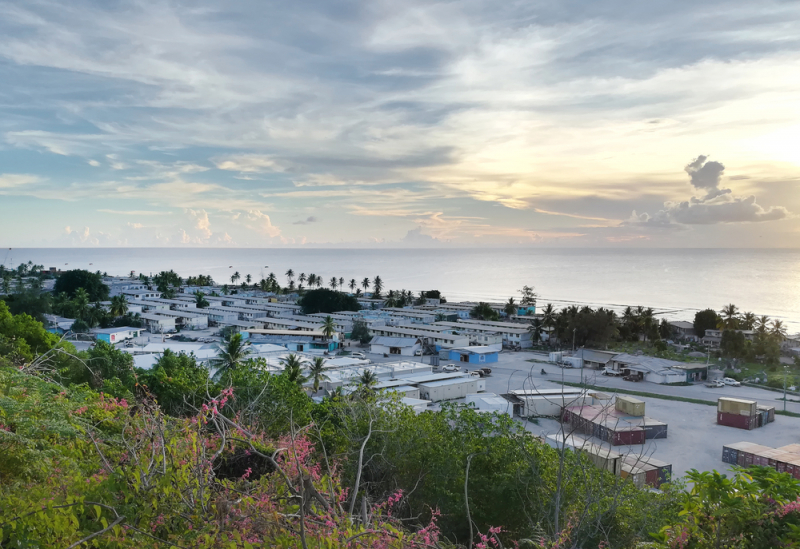
MSF Ireland 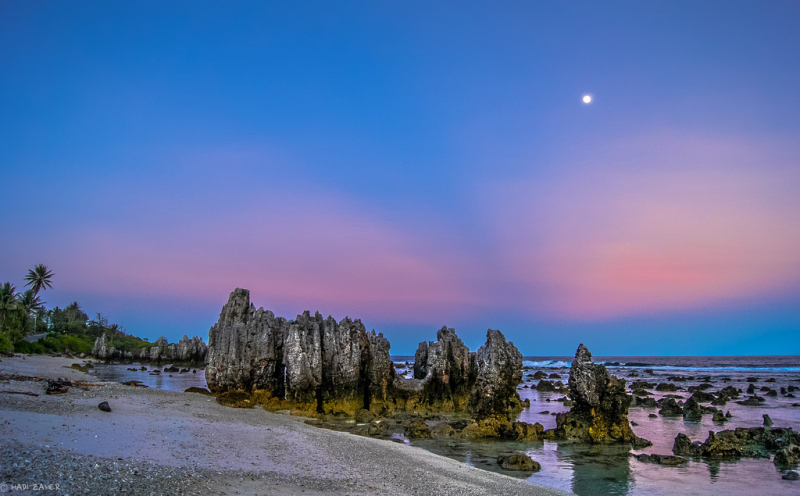
tourist-destinations.com -
Vatican City is an autonomous city-state, microstate, and enclave located in Rome, Italy. Its official name is the Vatican City State. The state, also known as the Vatican, gained its independence from Italy in 1929 through the Lateran Treaty. It is a separate territory that falls under the Holy See's "full ownership, exclusive dominion, and sovereign authority and jurisdiction", which upholds the city state's temporal, diplomatic, and spiritual independence. The Holy See is itself a sovereign entity under international law. Vatican City, which has been called the smallest country in the world, is a nation without a de jure military; nevertheless, this hasn't always been the case. There have historically been several military organizations established to defend the nation and, most importantly, the Pope.
Notably, while Pope Paul VI disbanded the Noble Guard and Palatine Guard in 1970, both organizations did exist. The Pontifical Swiss Guard is the clearest example of a militarized force in use today in Vatican City. Both the Pope and the Vatican Palace are to be safeguarded by this organization. There is also the Gendarmerie Corps, however this organization is viewed as a civilian as opposed to a military force. They are in charge of maintaining law and order, managing traffic, guarding borders, and looking into illegal activities.
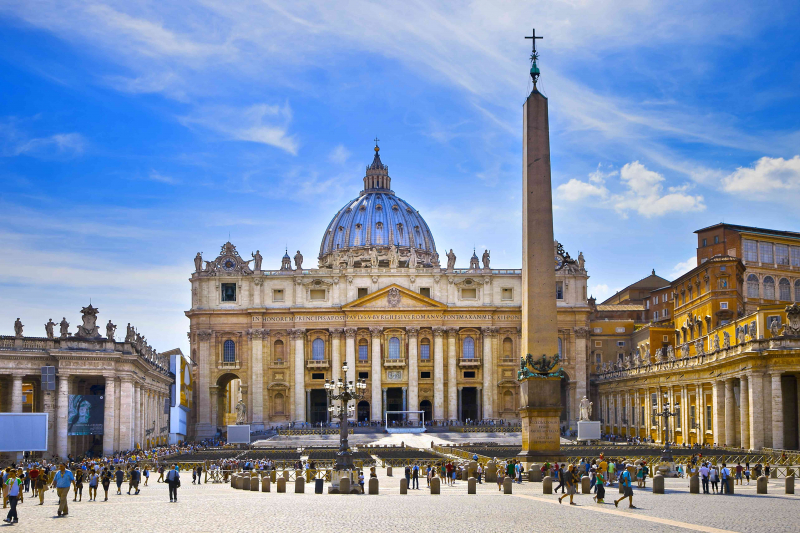
TripSavvy 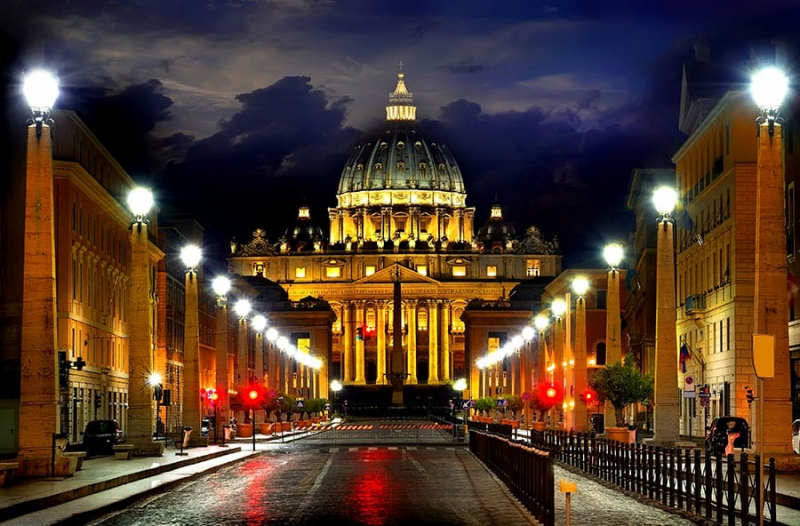
ceoworld.biz -
In the Polynesian subregion of Oceania in the Pacific Ocean, there is an island nation and microstate called Tuvalu. Its islands are almost halfway between Australia and Hawaii. According to well-established ideas describing a migration of Polynesians into the Pacific that started around three thousand years ago, the earliest people to live in Tuvalu were Polynesians. Since there is little soil on the islands, they rely mainly on imports and fishing for food, with tourism and fishing making up the bulk of the local economy. As a tiny, low-lying island nation, the United States is particularly vulnerable to sea level rise brought on by global warming. As a member of the Alliance of Small Island States, it participates actively in international climate discussions.
The South Pacific island nation of Tuvalu is a member of the British Commonwealth. The nine islands that make up the nation are tiny, thinly populated atolls and coral islands with palm-lined beaches and WWII wreckage. Off the coast of Funafuti, the country's capital, lies the Funafuti Conservation Area, which has a lot of uninhabited islets where marine birds may find refuge and calm seas for diving and snorkeling among sea turtles and tropical fish.
Since the nation's establishment, there hasn't been a military, although there is a tiny police force and a Maritime Surveillance Unit for internal security. The Tuvalu Police Force, which has its main office in Funafuti, is Tuvalu's national police force. It consists of a Maritime Surveillance Unit as well as Customs, Prisons, and Immigration. Police wear uniforms with a British flair. The Police Powers and Duties Act of 2009 and the Police Powers and Duties Regulations govern how the police department is run. Part III of the Criminal Procedure Code contains a description of the powers of arrest and search.
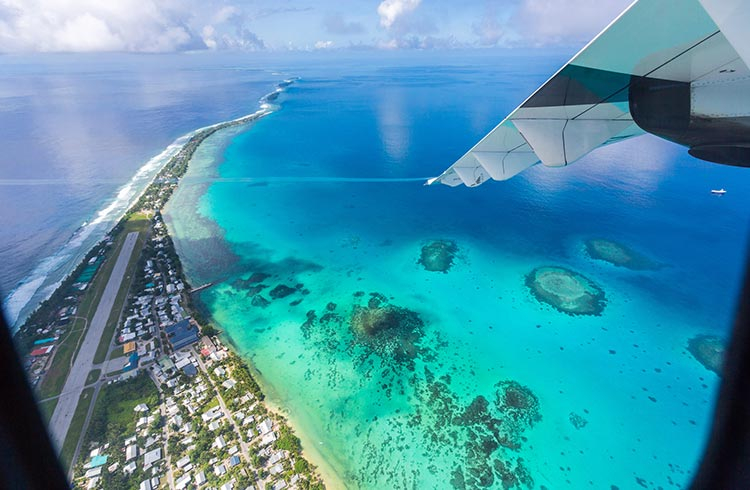
World Nomads 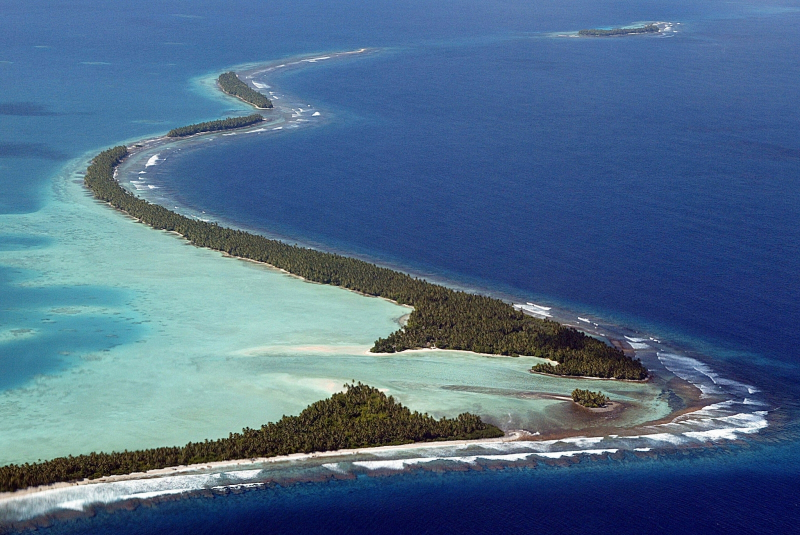
IBTimes UK -
Samoa is a Polynesian island nation made up of two large islands (Savai'i and Upolu), two smaller, inhabited islands (Manono and Apolima), and a number of smaller, uninhabited islands, such as the Aleipata Islands. Samoa was once known as Western Samoa until 1997. Samoa has 11 administrative divisions and is a unitary parliamentary democracy. It is a Commonwealth of Nations member and a sovereign state. On December 15, 1976, Western Samoa was admitted to the United Nations. The capital city is Apia. A Samoan language and culture were developed by them.
Since the nation's establishment, there hasn't been a military organization, although there is a tiny police force and a Maritime Surveillance Unit for internal security. The Pacific-class vessel Nafanua is operated by the Maritime Surveillance Unit, which is armed with small arms. A cooperation agreement from 1962 states that New Zealand is in charge of defense. Samoa currently lacks a permanent military force that could be deployed if required. Instead, the nation would have to rely on its friendships with other nations to provide security and defense during a conflict. There is a Samoa Police Force in the nation, but it is obvious that this is not regarded as the nation's primary military force.
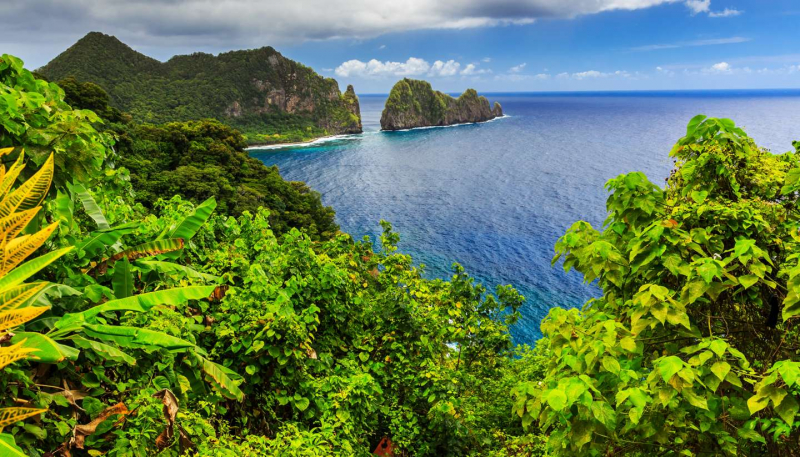
World Travel Guide 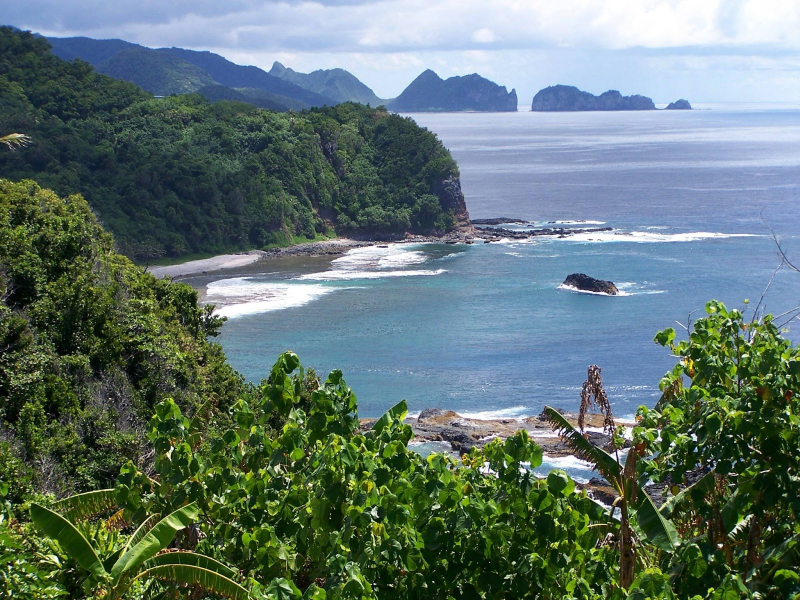
blogspot.com -
Known in the past as Belau, Palaos, or Pelew, Palau is an island nation and microstate in the western Pacific. Its official name is the Republic of Palau. The country, which connects the western Caroline Islands group to some of the Federated States of Micronesia, includes around 340 islands. The Micronesia region includes the archipelago of Palau, which consists of around 500 islands in the western Pacific Ocean. The commercial center of the island and location of its former capital, also called Koror, is Koror Island. The larger Babeldaob, which is on its east bank, is home to Ngerulmud, the nation's present capital, as well as rocky mountains and sandy beaches. To the north, the Badrulchau are ancient basalt monoliths that stand in lush meadows surrounded by palm trees.
Since the nation's foundation, the police—which includes a 30-man Maritime Surveillance Unit for internal security—have been the only troops authorized. The Pacific-class patrol boat President H.I. Remeliik is operated by the Maritime Surveillance, which is armed with small arms. Palau does have a Palau National Police division, which was established to offer the necessary protection for civilians despite the absence of a national military force. The Palau National Police force, like most police forces, is required to maintain order and deal with any potential internal unrest. Palau would need assistance from other nations to provide some sort of defense system if war were to ever break out.
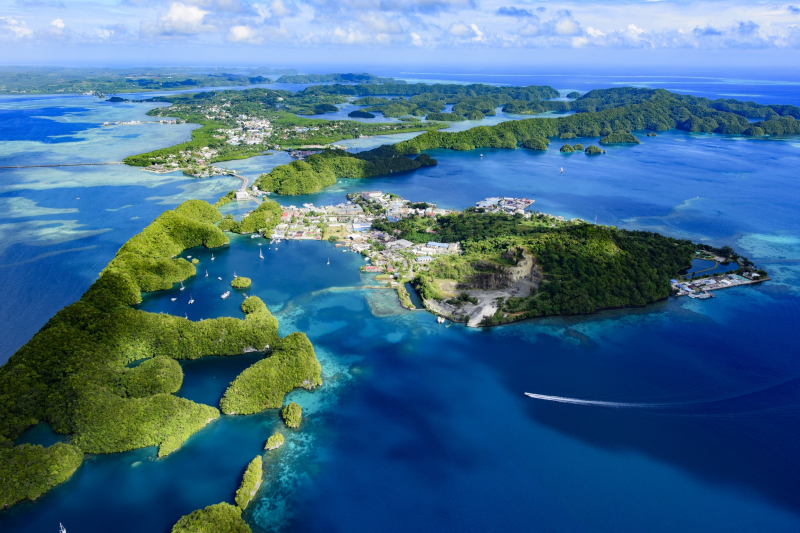
aiffp.gov.au 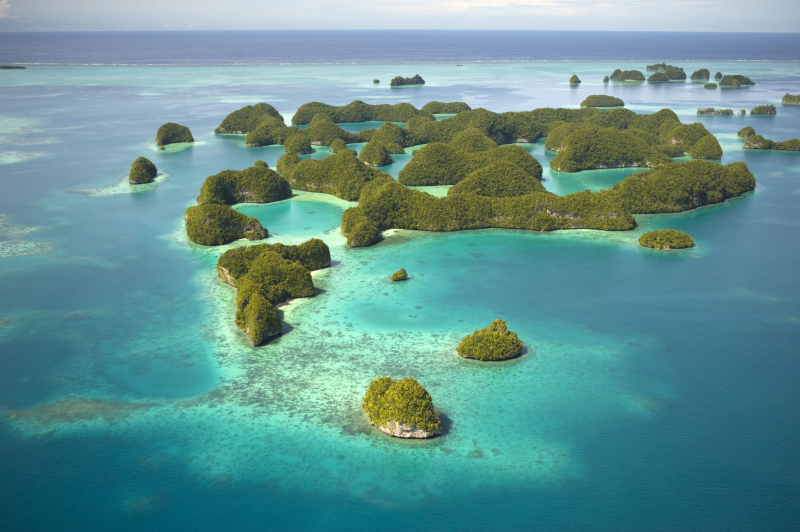
goodtravel.guide -
The Marshall Islands, also known as the Republic of the Marshall Islands, are a small, sovereign republic located in the Pacific Ocean close to the Equator and just west of the International Date Line. Geographically, the nation is a part of the greater Micronesian island chain. The Republic of the Marshall Islands was established in 1982, and the majority of its residents are of Marshallese heritage, however there are also a few immigrants from the United States, China, the Philippines, and other Pacific islands. The Marshall Islands received the distinction of becoming a sovereign state under the Compact of Free Association of 1983.
Palau and the Federated States of Micronesia are also party to the agreement. The three nations would be free under this arrangement, but they would also be considered affiliated states of the United States. As a result, the Marshall Islands would not have a regular military force or any other responsibility for the nation's security during a conflict, and the United States would act as the protectorate. The Marshall Islands Police was established by the nation to perform standard police functions there. The United States is solely responsible for the defense and security of the Marshall Islands since it is regarded as an affiliated state. The United States would have to offer the required military assistance to sustain the war if the islands were ever attacked.
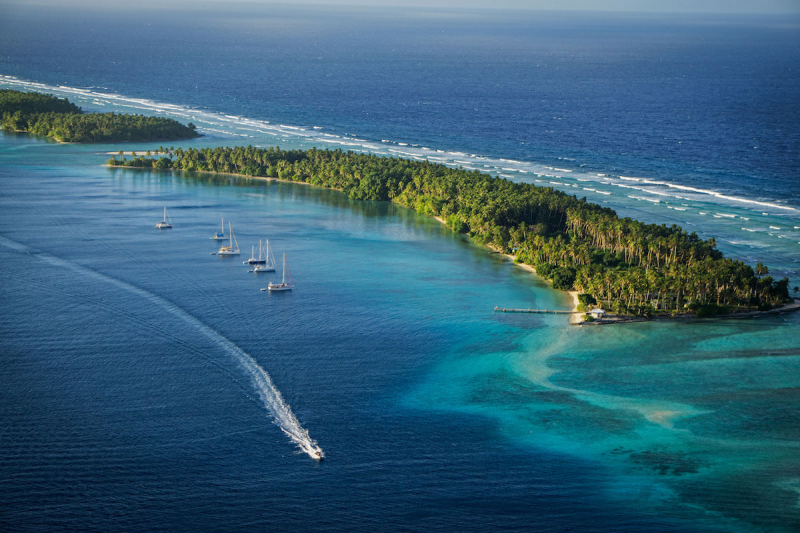
onhisowntrip.com 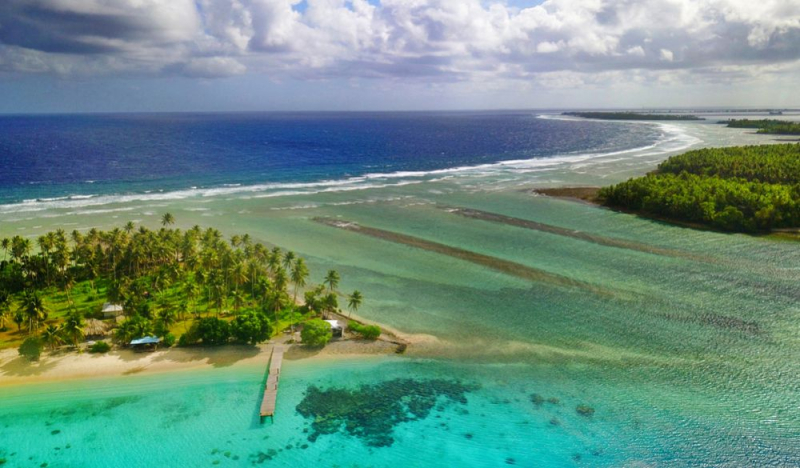
tourist-destinations.com












